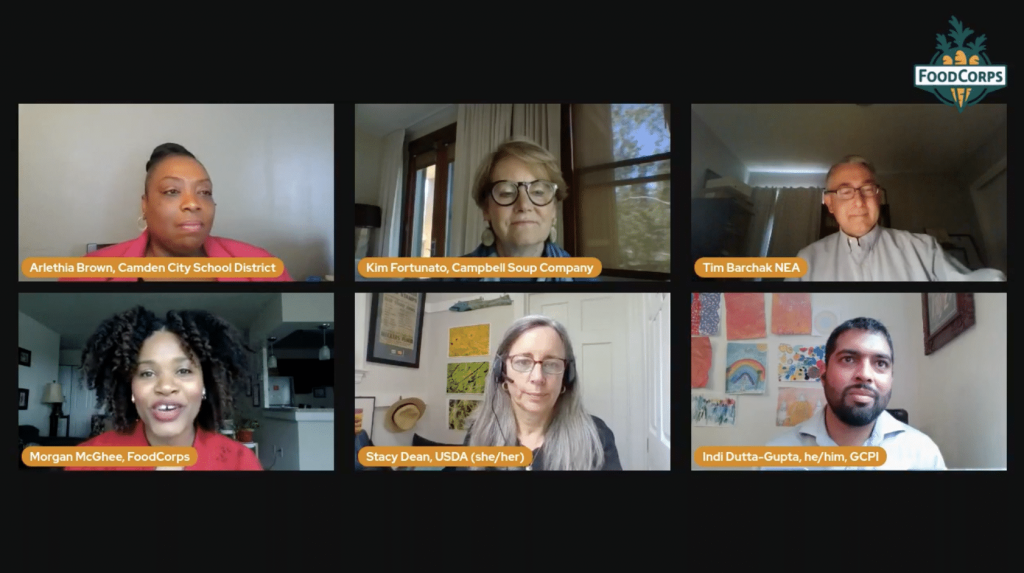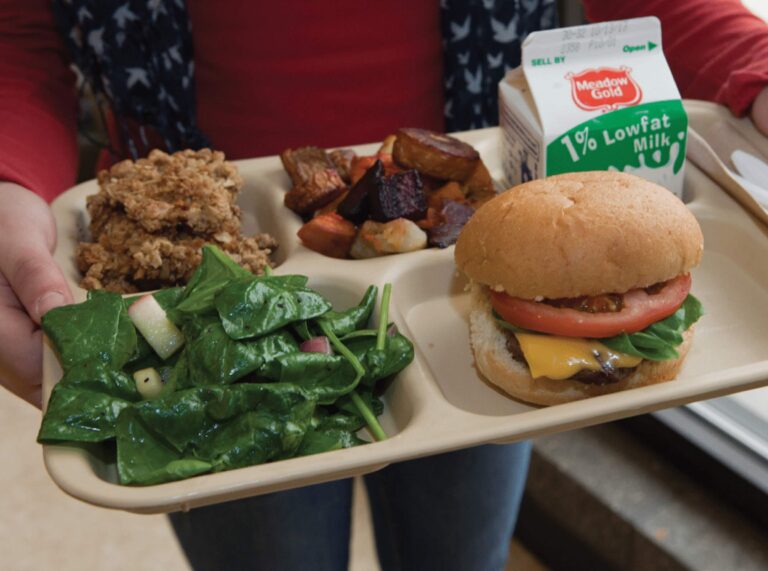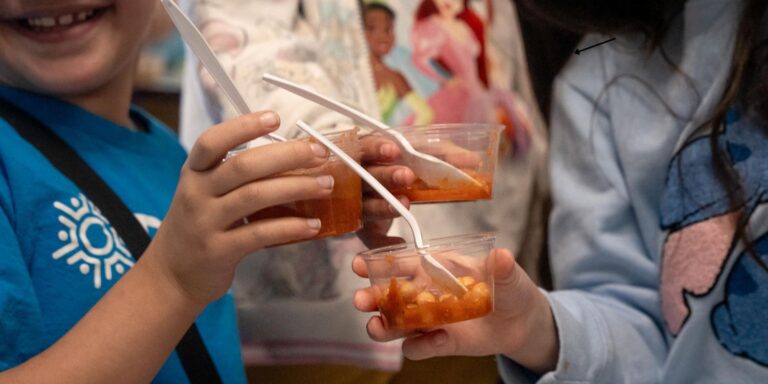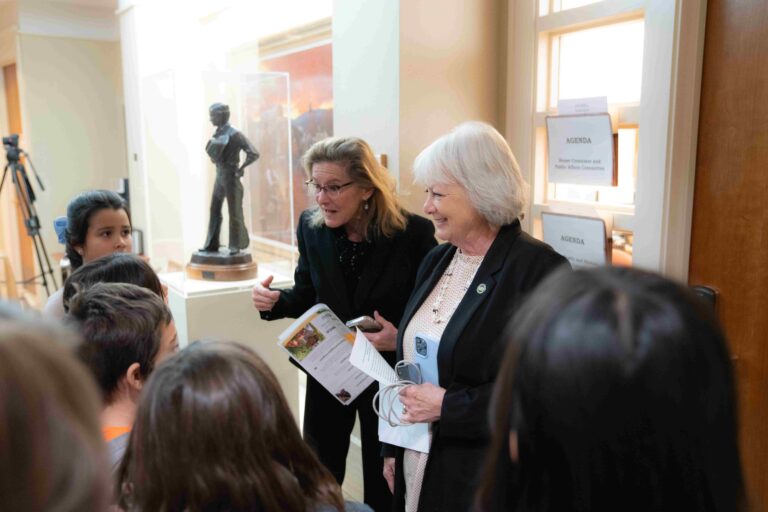Recap: Virtual Town Hall on the 75th Anniversary of the National School Lunch Program
More than 100 FoodCorps supporters gathered for a Virtual Town Hall on the legacy of and opportunities for the National School Lunch Program.
Join our corps! Applications for 2026-2027 are now open. Apply by March 30.
More than 100 FoodCorps supporters gathered for a Virtual Town Hall on the legacy of and opportunities for the National School Lunch Program.

This year marks the 75th anniversary of the National School Lunch Program (NSLP), a pivotal program responsible for nourishing millions of children each year. In a year of national recovery and a new political landscape, now is the time to talk about how food education can enrich the NSLP and support students’ social, emotional, and academic success.
On June 8, more than 100 educators, school nutrition leaders, school food advocates, and FoodCorps supporters gathered for a Virtual Town Hall on the legacy of, and opportunities for, the NSLP, and the pivotal role of food education in connecting kids to healthy food.
Panelists included:
In this conversation, moderated by FoodCorps’ Director of School Nutrition Leadership, Morgan McGhee, panelists spoke about how the school lunch program has been a source of nourishment and safety for millions of kids and families. School meals help to level the playing field by making it easier for kids to access healthy foods at a low or no cost. About 30 million kids qualify for free or reduced lunch through the NSLP.
“The greatest accomplishment of the school lunch program is having the ability to provide resources to underserved communities that have been impacted by economic strains, social and economical barriers, that exist solely due to inequities and injustices that we’ve been fighting for all along.” — Arlethia Brown, Sr. Director of Camden School Nutrition with Camden City School District.
“We know that families count on the school lunch program to make sure that their kids are getting the food they need to grow, learn, and thrive,” said Stacy Dean, Deputy Undersecretary, USDA Food, Nutrition, and Consumer Services. “Nothing in my opinion could be of greater impact than providing a lifeline for vulnerable kids and ensuring all kids, regardless of their background, are set up for success.”
“At NEA we like to say, in order for learning to take place, a child must be healthy, safe, engaged, supported, and challenged,” said Tim Barchak, Senior Policy Analyst for the National Education Association. “Feeding a hungry child is meeting the most fundamental of those needs.”
This conversation comes at a time when Congress has the opportunity to revisit child nutrition reauthorization (CNR), the critical process by which laws governing child nutrition programs are updated. Right now, FoodCorps and our partners are advocating for four bills to be included in the next CNR to bolster connections between classrooms, cafeterias, school gardens, and local farms. One of these bills, the Food and Nutrition Education in Schools Act, seeks to place more food and nutrition educators in public schools.
“When I think about racial disparities, and I think about the advancement of racial equity through school meals and food education, and the opportunities that CNR must bring to strengthen connections between our farms and our gardens, our classrooms and cafeterias, that means curriculum changes, that means policy changes and that means… ‘think big’, and that’s what we need to do,” said Arlethia Brown, Sr. Director of Camden School Nutrition with Camden City School District.
Other panelists also addressed the importance of school meals as a tool for furthering racial and economic equity in schools, especially during and after the pandemic, which illuminated existing racial inequities in school food programs and beyond.
“The most important thing about the school lunch program is it lifts people up in a way to address major longstanding inequities, [especially] health and racial inequities,” said Indivar Dutta-Gupta, Co-Executive Director of the Georgetown Center on Poverty & Inequality.
Speakers also discussed what this new landscape must look like as we move into a post-pandemic world.
“The pandemic if nothing else really showed us in a very clear way how many of our systems need to be examined and researched and rebuilt, and among those is our school meal system,” said Kim Fortunato, President of the Campbell Soup Foundation and Vice President of Community Affairs for Campbell Soup Company.
For updates on future Town Halls, make sure to sign up for FoodCorps emails.
Take action! We need your help to make sure four critical bills are included in the next child nutrition reauthorization. Contact your legislators now.

3 Reasons We Need School Meals for All

Mindful Tasting: Eating with All 5 Senses

Our 2025 Child Nutrition Policy Year in Review